Opioid overdoses from drugs like oxycodone are now the number one cause of accidental death in the United States (number two is car crashes). They now exceed 70,000 every year and make up about 70 percent of all overdose deaths.
You may be wondering, “How long does it take to get addicted to oxycodone?” That is a complex question, the answer to which depends on several factors.
This article explains what those are. Once you understand these variables, it can help you better address the potential for addiction. Keep reading to learn more.
What Is Oxycodone?
Oxycodone is an opioid pain medication or analgesic. It also is an illicit street drug with different names, but the most common ones are “oxy” and “OC.” You may also hear it used interchangeably with the “OxyContin,” which is one of its manufactured forms.
Oxycodone is a semi-synthetic narcotic. It derives from thebaine, an alkaloid found naturally in the opium poppy plant. However, like with other opioids, scientists must synthesize it in a laboratory to make the drugs that are consumed by individuals.
Oxycodone is most often prescribed to treat injuries and after major surgery. Other conditions include bursitis, arthritis, lower back pain, and pain associated with serious illnesses, like cancer.
Oxycodone is most often taken orally in tablet form. The medication can be crushed up and sniffed or dissolved in water and taken intravenously. Some users heat the tablet on foil and inhale the vapors.
How Does Oxycodone Work?
Oxycodone is a central nervous system depressant. It works by binding to opioid receptors in the brain, spinal cord, and organs. This blocks pain signals received from various parts of the body.
The medication also does more than govern pain pathways. It infiltrates part of the brain stem and switches off specific nerve cells that control pleasure and reward networks. Once this happens, these circuits fill with the neurotransmitter dopamine.
This is what creates a surge of happiness and euphoria after taking oxycodone or other opioids. It’s what diminishes anxiety and stress. It also can impact breathing and consciousness.
This dynamic alone can trigger addiction. In short, the reward centers in the brain want more dopamine. However, something else happens when taking oxycodone long-term that contributes to addiction.
Over time, neurological pathways adapt to the presence of opioids. They come to prefer that particular delivery method of dopamine, which diminishes the impact of pleasure derived from everyday activities. It is easy to see how this leads to cravings and the propensity for increased doses to achieve the same effects.
What Are the Side Effects of Oxycodone?
While the goal of prescription oxycodone is pain relief, other side effects often accompany the use of the medication. These include sedation and respiratory depression.
Some people experience papillary constriction and constipation. Liver damage can be a long-term side effect of habitual oxycodone use as well. Euphoria is the symptom most associated with addiction.
There also are some tell-tale side effects that are signs of potential overdose. These include extreme drowsiness, confusion, cold or clammy skin, fatigue, and shallow breathing. Oxycodone can induce a coma which can lead to death as well.
How Long Does It Take To Get Addicted to Oxycodone?
Oxycodone is a Schedule II controlled substance. This means that, even when taken as prescribed, it can lead to dependence and addiction.
Medical professionals describe addiction as an irresistible craving for a substance. This leads to compulsive use despite harmful consequences.
The short answer to “How long does it take to get addicted to oxycodone?” is that it depends. In general, people who take a prescribed dose for less than two weeks are less susceptible to opioid addiction. That doesn’t mean they cannot develop dependence on the medication.
Taking a prescribed dose longer than this timeframe can result in cravings. It also can increase the likelihood of withdrawal symptoms when the individual stops taking the medication.
Exceeding a prescribed dosage of oxycodone also will increase the chances of addiction, even with short-term usage. Likewise, since the effects of oxycodone can dissipate over time, people are more likely to increase dosage with long-term use.
The combination of prolonged use and larger doses can compound these dangers. It can increase the likelihood of oxycodone dependency and the chances of overdose. This also can make recovery that much more challenging.
Withdrawal Symptoms
Withdrawal symptoms play a major part in addiction, including thwarting attempts at recovery. These can range from mild to quite severe, which usually corresponds to the extent of the abuse.
Symptoms often start about 12 hours after the last dose of the medication. They typically last several days (although some can linger for months).
Besides oxycodone cravings themselves, common withdrawal side effects include anxiety and irritability. People might experience hot or cold flushes, as well as sweating or tremors. Some patients may have nausea and vomiting, diminished appetite, diarrhea, runny nose, and sneezing.
Although withdrawal symptoms are rarely life-threatening, they can be quite unpleasant. For this reason, it is not recommended for anyone who has been taking oxycodone for more than a few weeks to quit “cold turkey.” These circumstances almost always warrant intervention.
Medical detox centers and rehab treatment centers can play an important role in aiding recovery. They can help patients deal with both the physical and psychological challenges associated with oxycodone addiction and withdrawal.
Also, some medications can help diminish or manage withdrawal symptoms. A common one is ondansetron, which is also used to alleviate nausea and vomiting in patients undergoing chemotherapy. Addiction treatment specialists can advise you and offer the best tools for aiding recovery.
Find Oxycodone Addiction Treatment Near You
Now that you have an answer to “How long does it take to get addicted to oxycodone?” you can take the first steps toward recovery. Opioids are dangerous drugs that can have serious health and personal consequences. Using medications like Suboxone can aid in the recovery process for those addicted to Oxycodone. You can get Suboxone online from many telemedicine providers.
At Recovery Delivered, our goal is to eliminate the two main barriers to recovery: access to care and not having time to devote to the effort. We provide evidence-based addiction treatment, including medication-assisted treatment (MAT), through online recovery services. Reach out to us today to schedule treatment for opioid dependency or other issues.


